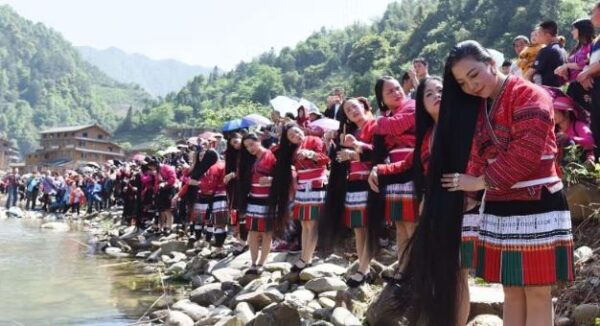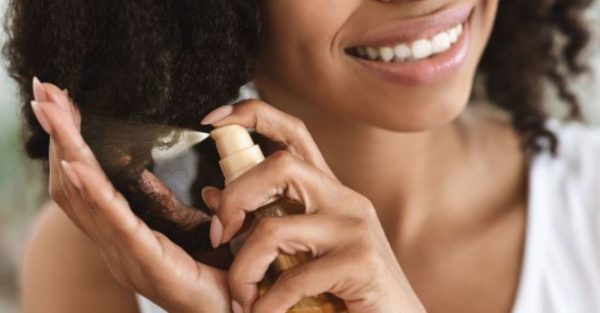Lifestyle
Meet the tribe with the longest hair in Africa
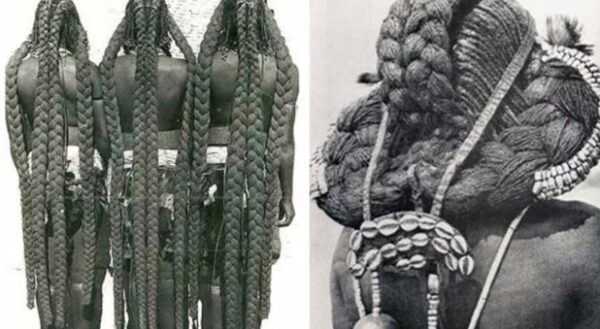
Forget the myth that black women have short hair. The Mbalantu women in Africa have really long hair.
In Namibia and Angola, the Mbalantu women proudly defy expectations with their long hair that reaches their ankles. They are often called the Braided Rapunzels.
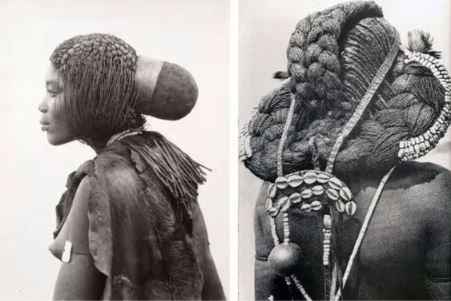
1. Natural Moisture
The Mbalantu women use a particular homemade blend of “omutyuula” (acacia) bark and fat. This keeps their hair moisturised and avoids damage and breakage at a young age.
2. Ceremonial Hair Care
As a Mbalantu girl matures, her hair becomes a part of her journey. Around the age of 12, specific ceremonies are held to promote hair development. The girl is required to coat her hair with a thick paste prepared from the finely powdered tree bark of the “Omutyuula” tree mixed with fat.
The young girl will live with this thick combination on her scalp for years before it is freed to reveal the hair.
3. Unique Styling Techniques
After the base is built, fruit pips and long sinew strands are tied to the hair, which finally evolves into the characteristic “Eembuvi” braid. These strands reach the ground by the time a girl enters the “Ohango” initiation ceremony at sixteen.
4. Unique Styling Techniques
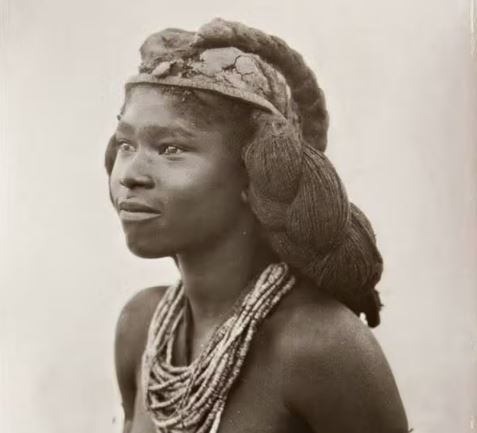
After the base is built, fruit pips and long sinew strands are tied to the hair, which finally evolves into the characteristic “Eembuvi” braid. These braids reach the ground by the time a girl reaches the “Ohango” initiation ritual at the age of 16, symbolising her passage into womanhood.
5. Continuous Care
As a mature woman, her hair receives an additional coating of the “omutyuula” mixture to keep it growing. When married, the “Eembuvi” braids are organised into a headpiece, which can be so heavy that it requires support from a rope or skin strap. This style represents her marital status and only changes during big life events such as motherhood.
The famous knotless braids and many braid hairstyles are inspired by the Mbalantu women’s “Eembuvi” braids. Their commitment to tradition and distinctive hair care practices demonstrate the value of culture.


